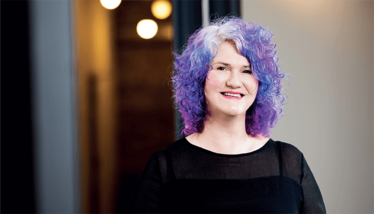Why Sex Matters in Drug Development
A response to “A History of Missed Opportunity” and why conversations on gender must go deeper
Emma Banks | | 3 min read | Opinion

In the July/August issue of The Medicine Maker, I read the feature,A History of Missed Opportunity. The premise of the article was to explore the implications of attitudes towards women’s health needs on patient lives. Contributors explained that historic challenges still influence the way this important and sizable area of pharmaceutical development is viewed. From clinical trial exclusion to a lack of understanding of the illnesses and conditions that predominantly or exclusively affect women and girls, there is much work to be done.
What an interesting article and a great conversation to be part of – but how sad to see that we still have such a long way to go!
When I was a pharmacology student, many of my male friends volunteered for phase I trials to earn some extra cash (there definitely wasn’t much of a drive towards helping others!). However, I wasn’t allowed to volunteer because I was female. Fast forward many decades and, rather disappointingly, things are not much better.
I agree our hormonal cycles or reproductive timeline creates issues in clinical trials because drug developers need to control everything so tightly, but it gives very little insight into how a therapeutic might impact a woman specifically. In which case, the experiment continues even though the drug is licensed. Perhaps better use of real-world data could improve things?
I agree with the experts in the feature; our industry needs to do more to help drive improvements in healthcare inequality, but we also need to change how we train our healthcare professionals. Despite our best efforts, we still assume women’s health is mainly linked to hormones or reproduction. I recently read Sex Matters by Alyson J McGregor and it opened my eyes to the subconscious (I hope) perception of women in the healthcare system. The book emphasizes that women’s bodies are different to men’s. From how we feel pain to the risks of certain drug interactions, applying a model to women that is developed around men is costing us all dearly.
Fundamentally, attitudes do need to change – and it seems an essential place to focus is the interface between women and their healthcare provider. Personally, being faced with limited access to the right HRT because of inconsistent attitudes across our healthcare system is seriously frustrating – and it clearly does nothing to close the gap in healthcare inequality.
I hope the vibrant and innovative pharma sector can push the thinking forward and adjust the approach to women and healthcare, and more broadly equality, diversity, and inclusion. In fact, The Medicine Maker’s article reminded me of my colleague’s blog on the subject of equality, diversity, and inclusion in life sciences – particularly in clinical trials. She surmised that if you don’t intentionally include, you will unintentionally exclude.
We need to shine a much brighter spotlight on gender and equality, diversity, and inclusion – and for much longer!
If you have any thoughts to share on this article, get in touch at [email protected]



















